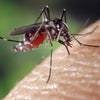CBD for Migraines: What We Know and What We Don't Know


CBD for migraines. That’s the topic of today’s article, and we’ll look into what we know and what we don’t know about the effectiveness of CBD in combatting this painful, life-disrupting condition. As with many topics related to cannabis, the users are really driving the ship here. Many people already use CBD or marijuana to help ease the symptoms of migraines, as well as go after the root cause of the illness.
Let’s dive into the facts about CBD and migraine treatment.
What Are Migraines?
First off, what are migraines? Are they just headaches or really bad headaches? Not quite. Although similar, a migraine is much more intense and is most often accompanied by other serious symptoms. Headaches are defined as mild to severe pain in your head that can cause pressure and aching. They usually occur on both sides of the head, or in the temples, forehead, or back of the neck.
According to the Mayo Clinic, the most common type of a headache is a tension headache. This variety is typically caused by stress, muscle strain, or anxiety. Other types include cluster or cycle headaches, sinus headaches, or sudden headaches called “thunderclaps”.
Just like with some severe headaches, a migraine also causes serious throbbing pain or a pulsing sensation. The difference is that migraines are usually characterized by the pain being on one side of the head and can be so severe that it disrupts your normal daily activities. Plus, they are generally accompanied by other symptoms like:
- nausea
- pain behind one eye or ear
- pain in the temples
- seeing spots or flashing lights
- sensitivity to light and/or sound
- temporary vision loss
- vomiting
Warning Symptoms of Migraines
For some people who suffer from migraines, the pain and other symptoms are preceded by a warning symptom called an aura. A migraine aura includes visual disturbances like flashes of light or black spots, as well as other sensations like tingling on one side of the face or in an arm or leg or even difficulty speaking. These feelings or disturbances will typically occur 10 to 30 minutes before the onset of the migraine, but this varies from person to person.
One or two days before a migraine, some people may also experience constipation, mood changes, food cravings, neck stiffness, increased thirst and urination, and frequent yawning.
Causes of Migraines
The exact culprit behind migraines is not completely understood by medical professionals. With that said, it is thought that both a person’s genetics and various environmental factors play a role. Changes in the brainstem and its interactions with the trigeminal nerve, a major pain pathway, might be related to them, as well as imbalances in brain chemicals and neurotransmitters like serotonin (we’ll come back to this later).
For people who are genetically or environmentally susceptible to migraines, triggers may be hormonal changes, stress, sleep changes, sensory stimuli, medications, foods, or physical exertion. Interestingly, women are about three times more likely to experience the condition, and although they can occur at any age, they tend to peak for people in their 30s.
Traditional Migraine Treatment
Migraines often have a serious impact on a person’s quality of life. They can ruin social plans, hurt productivity at work, and cause people to retreat to the comfort (and often darkness) of their homes to try to escape the pain. More often than not, the treatment of migraines includes over counter pain reliever drugs like aspirin, ibuprofen, acetaminophen, or medications containing all three.
Excedrin is one of the most popular drugs to relieve migraines and combines caffeine, aspirin, and acetaminophen. There are also a range of other drugs that are aimed at treating the various symptoms like nausea and sensitivity to light and sound.
The problem with using these medications to treat migraines is that they come with their own set of issues and side effects. For example, long term use of NSAIDs (like ibuprofen and aspirin) can possibly lead to ulcers or bleeding in the gastrointestinal tract, while overuse can actually produce headaches themselves.
In addition to treating the symptoms, many people also use medications to attempt to prevent their migraines in the first place. Beta blockers, calcium blockers, and other blood pressure lowering drugs have been shown to reduce the number of migraines that occur. Certain antidepressants and antiseizure drugs may also help. Again, however, all of these may come with serious short and long term side effects.
Can CBD Help Migraines?
Because many of the available drugs and medications can have adverse consequences or are not always effective, many migraine sufferers are always on the look out for other treatment options and solutions. There is a growing movement of people suffering from all sorts of different conditions to lessen their use of and dependence on prescription or “harder” drugs.
But the question is, is CBD effective at relieving any or all of the symptoms of migraines?
The research into this topic is, admittedly, light. What’s more is that many of the studies that have looked into this area are focused on the combination of CBD and its more well-known cousin, THC. With that said, however, the research that has been completed looks promising.
- In 2016, a survey conducted by Pharmacotherapy indicated that “medical marijuana” (though isolated CBD was not part of this study) may reduce the frequency of migraine headaches. In this study, users reported a reduction in migraines from 10.4 down to 4.6 per month.
- A 2017 study concluded that a combination of CBD and THC reduced the intensity of migraine related pain by 43.5 percent, but only for participants who had experienced migraines since they were children.
- This review of several pharmacological studies from 2018 suggests that CBD may be effective at combatting all types of chronic and acute pain, including that caused by migraines.
- Another review from 2017 also concluded that there may be some benefit of consuming CBD for migraines, but that more research is needed to speak definitively.
Serotonin and Migraines
I said that we would come back to discussing serotonin. Like we already mentioned, the exact underlying causes of migraines are not 100% understood, but it is widely accepted by the medical community that serotonin plays a role.
The theory goes like this:
- Certain brain cells in certain people are more excitable than usual or than they should be
- These groups of brain cells then react strongly to varying stimuli and external situations (read: triggers)
- The reaction of the excitable groups of brain cells to certain stimuli triggers neuro chemicals, like serotonin, to narrow blood vessels throughout the body
- This narrowing of blood vessels is then thought to be the source of the migraine
If this theory is true, then it may open the door for CBD to have some effect on migraines. Why, you may ask? Because, as we’ve written about before, there is a deep connection between our body’s endocannabinoid system and serotonin.
Serotonin and CBD
As we wrote in that article, there’s mounting evidence that CBD interacts intimately with your body’s serotonergic system—the system of serotonin neurotransmitters. This system works to regulate mood, nausea, appetite, bone health, sleep, emotions, sexual function, and more.
The interesting thing is that cannabinoid receptors are found on serotonin neurons, and they're also visible in the corresponding inhibitory receptors. Specifically, CBD is thought to interact with 5-HT1a receptors that control serotonin levels in the brain and body. This leads to the conclusion that cannabinoids may increase serotonin levels in certain conditions, and reduce them in others, providing the balance necessary for proper health.
If serotonin plays a large role in producing migraines, then this connection between CBD and the serotonergic system is extremely important. It might mean that CBD can inhibit the release of serotonin during migraine triggers, thus preventing the constricting of blood vessels.
All of this is just conjecture at this point, but we are very excited to see what further research reveals on this subject.
CBD and Migraines: Should You Use It?
As we’ve pointed out, the research is still in its very early stages and, frankly, somewhat lacking. With that said, however, many people are consuming CBD for migraines anyway. Based on everything we know so far, CBD is completely non-toxic and safe to consume on a regular basis. There are no serious short or long term consequences, and the only side effects reported are drowsiness and light headedness when consumed in very large doses.
If you suffer from migraines and have either not found treatment that works or want to try a new treatment option, then talk to your doctor about giving CBD a try. You have nothing to lose and your life to gain!









